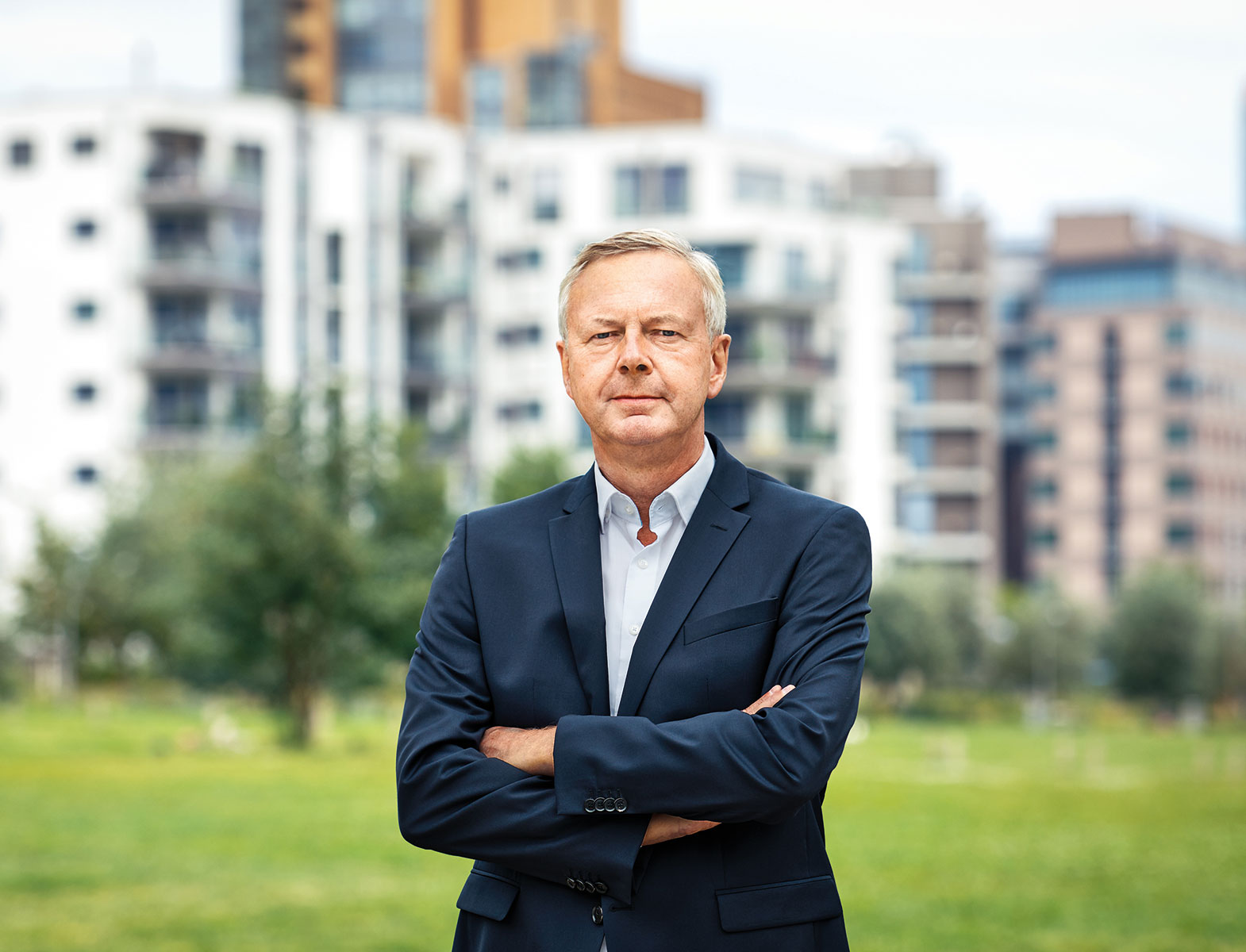The impact of climate change has become noticeable in Berlin too, with heavy rainfall, prolonged heat waves and droughts, and increased water scarcity. What measures have Berliner Wasserbetriebe) been taking to counter these climatic changes?
In line with the State of Berlin’s Water Master Plan, our company has developed a resilience concept. In view of sparse inflows into the rivers Spree and Havel, lower or increasingly volatile precipitation, together with population and economic growth at the same time in the capital region, the concept serves to provide greater security for Berlin’s fragile water cycle. For these reasons, with regard to water, we are placing a particular emphasis on three things: We are in the process of expanding our sewage treatment plants with additional treatment stages, and for this we are pumping in an investment of around 2 billion euros. After all, drainage from the sewage treatment plants flows into our rivers, and seepage from the latter forms the groundwater, which we then draw upon again later. As a second measure, we have initiated a paradigm shift in the way we deal with precious rainwater – moving away from drainage to decentralized storage, seepage, evaporation and its use wherever it falls.
And finally, we are also looking into reactivating former waterworks in order to place the water supply on an even broader footing. In addition, we are pushing our own renewable energy generation at the waterworks.
At the Schönerlinde sewage treatment plant in northeastern Berlin, Berliner Wasserbetriebe have begun constructing the first industrial-scale ozone plant. It enables the filtering of previously non-biodegradable trace substances from the water. What role will water treatment play in the sustainable water management of the future?
From a technical standpoint, much more is possible of course. Astronauts have modeled this by almost immediately reusing the little water they have up there in space in a constant process of recycling. But that takes a lot of – ideally clean – energy. And that is why preventing water pollution is always better than water treatment, which is becoming increasingly costly. There is still a lot of potential in sewage treatment plants: They are developing from being consumers of energy into being producers of energy and raw materials. This is already most visible in phosphorus recycling.
What can each of us do to support regional water resource management?
Actually, quite simple things that really do not cost us anything and which also do not require us to deny ourselves anything: Do not flush medicine or other chemicals down the toilet or sink; do not leave waste outdoors because wind and rain cause much of it to end up in the water; in midsummer, water your garden as early or late in the day as possible to prevent all the water evaporating right away.
The interview was conducted in March 2022.
Picture: Berliner Wasserbetriebe


